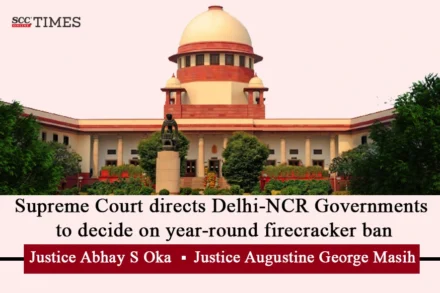
Supreme Court directs Delhi-NCR Governments to decide on year-round firecracker ban
Supreme Court said that the ban on firecrackers is required not only to curb the air pollution but noise pollution as well.

Supreme Court said that the ban on firecrackers is required not only to curb the air pollution but noise pollution as well.
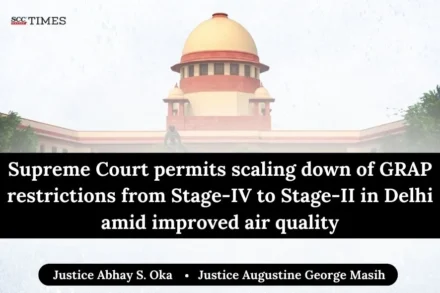
In its previous order, the Supreme Court had directed that Stage-IV of the Graded Response Action Plan, which was implemented to tackle the severe air quality situation in Delhi, remain in force until at least December 2, 2024.
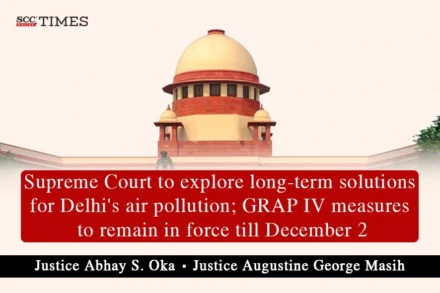
Graded Response Action Plan (GRAP) is a framework designed to take specific actions based on the level of air quality, with Stage IV being one of the highest stages involving stricter measures such as restrictions on non-essential activities, halting certain industrial operations, and enhancing public health advisories.
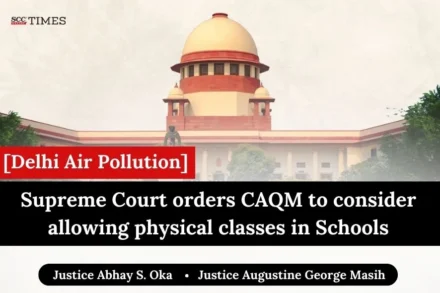
This directive came in response to an application filed by the parents of some students seeking the reopening of schools.
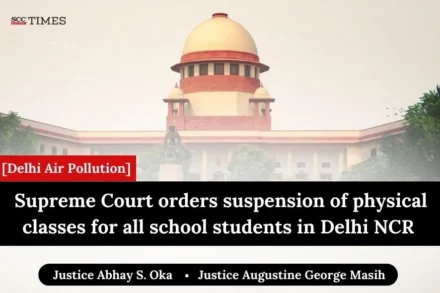
Supreme Court criticized the delay in implementing GRAP stages III and IV, stating that the CAQM’s approach of waiting for AQI levels to improve before taking action violated its 2018 order, which mandated preventive measures for air pollution.
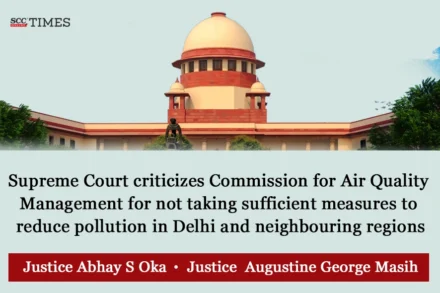
Stubble burning is the practice where farmers ignite straw stubble left in the fields after harvesting grains such as wheat and paddy. This method is used to ready the land for the next crop cycle. While it is the most convenient and cost-effective way to clear fields, it significantly deteriorates air quality.
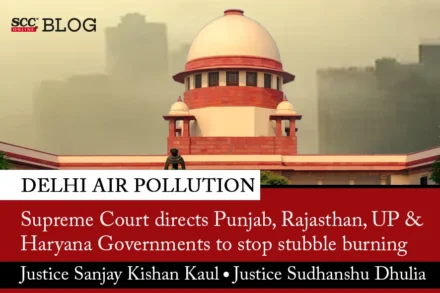
“Residents of Delhi are grappling with health problems year after year because we cannot find a solution to the issue. It requires immediate attention and Court monitoring, irrespective of whether the matter improves or not”